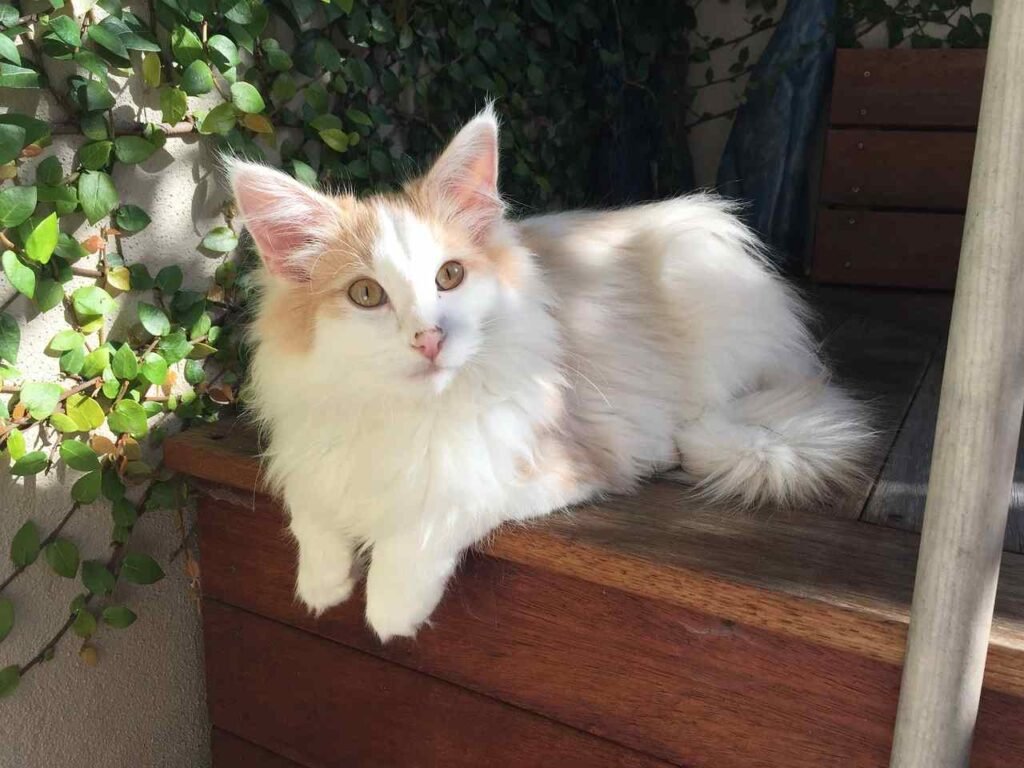Ragdoll cats are known for their striking blue eyes, soft semi-long fur, and gentle temperament. However, for those looking for a hypoallergenic cat, the Ragdoll is not for you. While Ragdolls are not hypoallergenic, they lack undercoats and shed much less than other long-haired breeds.
Many people are drawn to their affectionate nature, but if you’re prone to allergies, you might wonder: are Ragdoll cats hypoallergenic? In this guide, we’ll explore whether Ragdolls are a suitable option for allergy sufferers and what “hypoallergenic” really means. We’ll also discuss practical tips for managing allergies if you decide to bring a Ragdoll cat into your home.
What Does Hypoallergenic Mean?
The term hypoallergenic refers to something less likely to trigger allergic reactions. In the context of pets, hypoallergenic means that a breed or species produces fewer allergens, making it potentially more tolerable for people with allergies. It is important to note that no cat breed is entirely free from allergens.
Cats produce a protein called Fel d 1, found in their skin, saliva, and urine, which is the primary trigger for most cat allergies.
Are Ragdoll Cats Truly Hypoallergenic?
The straightforward answer is no—Ragdoll cats are not hypoallergenic. Although they have a semi-longhaired coat, which might seem like it would reduce allergen spread, Ragdolls produce just as much of the allergenic Fel d 1 protein as other breeds. Allergies are typically caused by dander (dead skin cells), saliva, and fur that carry the Fel d 1 protein.
Unfortunately, Ragdoll cats shed enough dander and groom themselves frequently, which means that they spread these allergens around your home.

Common Symptoms of Cat Allergies
If you are allergic to cats, you may experience a variety of symptoms when exposed to allergens such as dander or saliva. Recognizing these symptoms early on can help you manage your allergies more effectively. Here are the most common symptoms associated with cat allergies:
- Sneezing and a runny or stuffy nose
- Itchy, red, or watery eyes
- Coughing, wheezing, or shortness of breath
- Skin reactions such as hives or rashes where the cat has licked, scratched, or touched you
- General fatigue or feeling unwell
These symptoms can vary in severity from person to person. If you notice any of these symptoms after being around a Ragdoll cat.
Managing Allergies with Ragdoll Cats
If you are determined to have a Ragdoll cat despite having allergies, there are effective strategies you can implement to reduce allergen exposure and manage your symptoms.
Grooming is essential to reduce allergens. Brush your Ragdoll 2-3 times a week to minimize loose fur and dander, especially during spring and fall when shedding is at its peak. If possible, have a non-allergic family member handle the grooming to reduce your direct exposure.
Bathing your Ragdoll cat once a month can help remove allergens from their fur. Use a mild hypoallergenic shampoo to avoid irritating the cat’s skin, which could otherwise increase dander production. This is a common strategy suggested by cat grooming experts and adopted by many allergy sufferers to mitigate allergens.
Air Purifiers: Invest in HEPA air purifiers to filter out allergens from the air in your home. These purifiers are specifically designed to capture tiny particles, including pet dander, pollen, and dust mites. Placing these purifiers in rooms where your cat spends the most time can significantly reduce airborne allergens
Limit Cat’s Access: Limiting your cat’s access to certain areas, such as the bedroom, can drastically reduce allergy symptoms. Creating an allergen-free zone allows you to have a restful space free from exposure.
Wash Bedding and Fabrics Regularly: Washing your cat’s bedding, blankets, and even your bedsheets regularly can remove built-up allergens. Use hot water to kill any allergens, and consider using allergy-reducing detergents.
Medication: Over-the-counter antihistamines or allergy shots (immunotherapy) may help reduce symptoms for those who are highly sensitive to allergens.

How Allergy-Friendly Are Ragdoll Cats Compared to Other Breeds?
When comparing Ragdolls to other breeds that are often marketed as hypoallergenic, such as the Sphynx or Siberian cat, it is apparent that Ragdolls do not fall into the same category. Breeds like the Sphynx, which have little to no hair, or the Siberian, which is thought to produce less Fel d 1 protein, are generally better tolerated by people with allergies.
Low-shedding does not necessarily mean hypoallergenic, but some low-shedding cats are more likely to produce fewer airborne allergens.
Conclusion
In conclusion, while Ragdoll cats are beautiful, loving pets, they are not considered hypoallergenic. Their production of the Fel d 1 protein, combined with their grooming habits and fur, means they are likely to trigger allergies in sensitive individuals. However, if you are willing to put in the effort to manage these allergens, it is possible to enjoy the companionship of a Ragdoll cat. Ultimately, the comfort and health of both you and your pet should be the highest priority.

Hey guys, My name is Simon Smith. I’m from Canada and live near Victoria
I live with my sweet family and have 20+ Ragdolls of different types. I love them as my children. My profession is as a hotel manager.
I love to keep Ragdolls and grow their breeder case. I have 7 years of experience.
I’m an expert in cat care. So, I’m here to provide you with new information about my cats daily. This is my blog website, so I request that you kindly visit our site daily.
If you’re a Ragdolls lover and you have any questions or confusion about cats, text me on the Contact Us page or Gmail.
Thank u
